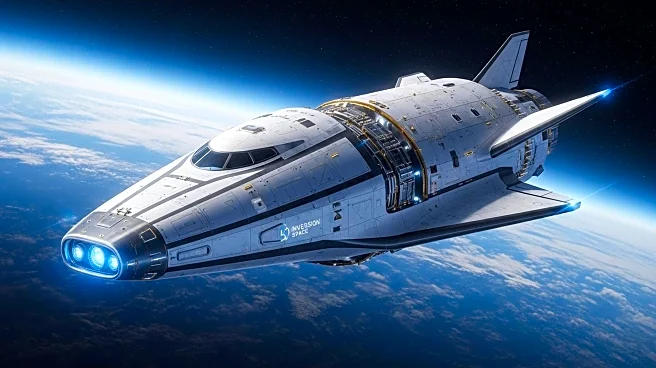What's Happening?
Inversion Space, a startup founded in 2021, is developing a space-based delivery system designed to transport cargo from low Earth orbit to any location on Earth within an hour. The company recently unveiled its Arc vehicle, a spaceplane and cargo capsule hybrid capable of carrying 500 pounds of supplies. The Arc is intended to be reusable, with the ability to store cargo in orbit for up to five years before reentering the Earth's atmosphere using a deorbit engine and parachutes. Inversion Space aims to launch the Arc by the end of 2026, following the lessons learned from its demo vehicle's inaugural mission earlier this year. The company is targeting military applications, promoting the Arc's potential to deliver mission-critical cargo rapidly to remote or infrastructure-limited areas.
Why It's Important?
The development of Inversion Space's Arc vehicle could significantly impact global logistics and defense operations. By enabling rapid delivery of cargo from space, the system introduces a new dimension to logistics, offering unprecedented speed and reach. This capability is particularly appealing to the U.S. military, which could benefit from the ability to quickly deploy resources to challenging environments. The success of this technology could also spur further innovation in space logistics, potentially leading to broader applications in commercial sectors. Additionally, the project highlights the growing role of private companies in advancing space technology and expanding its practical uses.
What's Next?
Inversion Space plans to continue refining its technology, with the goal of launching the Arc vehicle by 2026. The company aims to establish a constellation of these vehicles in orbit by 2028, enabling a scalable and responsive logistics network. As the project progresses, it will be crucial for Inversion Space to address any technical challenges, such as the propulsion malfunction experienced during its demo mission. The startup's success could attract interest from other industries and government agencies, potentially leading to partnerships or contracts that further validate and expand the use of space-based delivery systems.










